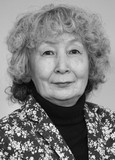Social inclusion of athletes with disabilities in regional national teams
Keywords:
communication, inclusion/exclusion, self-esteem, social functional systems, differentiation, sports competitions.Abstract
Objective of the study was to pinpoint the elements that contribute to the inclusion of athletes with disabilities in regional national teams.
Methods and structure of the study. To gather empirical information, a survey was created for athletes with disabilities (n=36) who are enrolled in the National Research University of the Russian Federation, the «Republican Center for Sports Training of National Teams of the Russian Federation». This center is responsible for developing and supporting sports training in 13 disciplines.
Results and conclusions. By comparing their condition before and after participating in sports, participants note not only an improvement in their well-being and vitality, but also an expansion of their social circle and other activities. In the world of sports, the rules, criteria, and standards are clearly defined, providing a legitimate opportunity for recognition, social status, and more.
It is evident that regular training of athletes with disabilities at the Sports Training Center for national teams contributes to their integration not only into the sports arena, where they can become renowned and respected sports masters, winners, or medalists in sports competitions of various levels. The recognition of athletes with disabilities underscores the fact that engaging in sports has given them a sense of belonging to a larger sports community.
References
Agrafenina Yu.A., Lyulevich I.Yu. Sotsialnaya integratsiya lyudey s ogranichennymi vozmozhnostyami zdorovya posredstvom sportivnykh i dosugovykh proyektov. Vestnik MGPU. Seriya «Estestvennyye nauki». 2021. No. 1 (41). pp. 77-89.
Bayer E.A., Gonchar O.A. Zhiznestoykost kak bazovoye kachestvo formirovaniya sportsmenov (na primere Uchilishcha olimpiyskogo rezerva). Teoriya i praktika fizicheskoy kultury. 2023. No. 8. pp. 40-41.
Belozerova L.A., Bragina E.A., Nikolaeva I.A. Motivatsiya dostizheniya i preodoleniye stressovykh situatsiy studentami-sportsmenami. Teoriya i praktika fizicheskoy kultury. 2023. No. 3. pp. 33-35.
Vlasov D.Yu. Rol adaptivnoy fizkultury v sotsialnoy integratsii lits s ogranichennymi vozmozhnostyami. Mezhdunarodnyy zhurnal gumanitarnykh i yestestvennykh nauk. 2023. No. 3-1 (78). pp. 94-96.
Golovinova I.Yu., Avetisyan A.R. Razvitiye adaptivnoy fizicheskoy kultury, kak pomoshch v sotsializatsii lyudey s ogranichennymi vozmozhnostyami. Nauka-2020, publ. 2021. No. 9 (54). pp. 194-199.
Loseva S.N., Sadygov G.I. Psikhologicheskiye osobennosti motivatsii sportsmenov v aspekte teoreticheskogo analiza. Teoriya i praktika fizicheskoy kultury. 2024. No. 3. pp. 44-46.
Luman N. Differentsiatsiya. B. Skuratov [transl.]. Moscow: Logos publ., 2006. 320 p.
Luman N. Samoopisaniya. A. Antonovskiy, B. Skuratov, K. Timofeeva [transl.]. Moscow: Logos, ITDGK «Gnozis» publ., 2009. 320 p.
Nepomnyashchikh P.A. Osobennosti zanyatiy fizicheskoy kulturoy dlya lits s ogranichennymi vozmozhnostyami. Vestnik nauki. 2023. No. 6 (63). pp. 287-292.
Petrova V.A., Kolodeznikov K.S. Dinamika razvitiya adaptivnogo sporta v Respublike Sakha (Yakutiya). Pedagogiko-psikhologicheskiye i mediko-biologicheskiye problemy fizicheskoy kultury i sporta. 2023. Vol. 18. No. 3. pp. 126-131.
Shapovalova M.E. Issledovaniye problem sotsialnoy integratsii invalidov v rossiyskom obshchestve. Gumanitarnyy nauchnyy zhurnal. 2023. No. 4-1. pp. 57-64.
Shevchenko A.I. Sotsialnaya integratsiya lyudey s ogranichennymi vozmozhnostyami kak obyekt sotsialno-filosofskogo analiza. Obshchestvo i pravo. 2011. No. 5 (37). pp. 285-289.

Additional Files
Published
How to Cite
Issue
Section
License
Copyright (c) 2025 Theory and Practice of Physical Culture

This work is licensed under a Creative Commons Attribution 4.0 International License.
